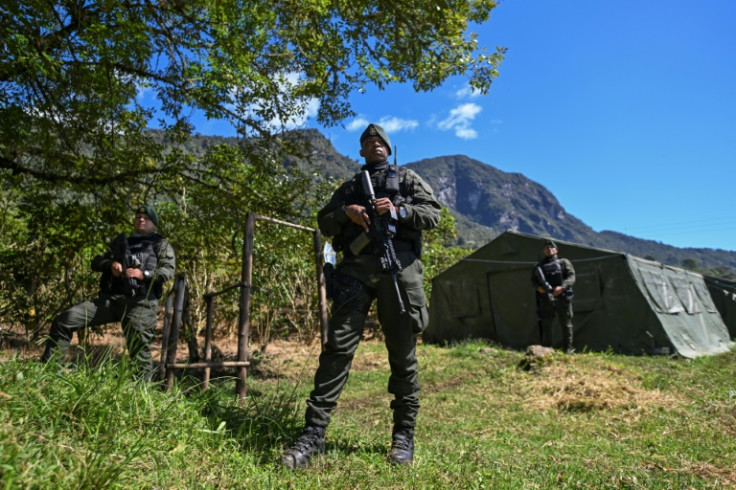
Colombia's EMC guerrilla group said Thursday it would not launch attacks in the city of Cali during the upcoming COP16 UN biodiversity summit, as it had previously threatened.
The rebels, who broke away from the FARC guerrilla movement when that group signed a peace deal in 2016, had ramped up attacks in towns around Cali in recent months, with a spate of bombings and shootings setting authorities on edge.
"To guarantee the smooth running of COP16 we decree the suspension of offensive military operations against public forces in the city of Cali, in the period between October 11 and November 6."
The summit runs from October 21 to November 1.
In July, the EMC warned the 16th meeting of the Conference of the Parties (COP16) of the Convention on Biological Diversity "will fail even if they militarize the city with foreigners."
The event hopes to attract some 12,000 delegates and exhibitors, as well as heads of state, to one of the world's most biodiverse countries.
Presenting itself as "protector of forests, waters and animals," the EMC criticizes COP16 as an event that prioritizes commercial interests and "justifies militarism."
But this summit is an opportunity "to open a debate on the need for a change in the economic model and a questioning of extractivism and predatory exploitation of the planet," the statement said.
The summit security manager, General William Castano, recently said more than 10,000 uniformed officers supported by Interpol, Europol and Ameripol were working on defense and intelligence cooperation dubbed the "Hummingbird Plan."
The idea is to "minimize criminals' attempts to affect security at the COP," he said.
Cali is the capital of the southwestern Valle del Cauca department, an EMC stronghold and the main coca-growing region in Colombia, the world's largest cocaine producer.
Being granted COP16 host status was a major coup for Gustavo Petro, Colombia's first-ever leftist president, who campaigned on an ambitious conservation and climate change program.
Petro has seen his quest to achieve "total peace" in a nation struggling to emerge from decades of armed conflict bogged down in complicated negotiations with a variety of armed groups.
The EMC recently split into supporters of Petro's peace efforts and opponents led by a man known as Ivan Mordisco, who commands an estimated 2,000 fighters.
Rights groups accuse guerrillas in Colombia of taking advantage of various ceasefires to expand their influence by seizing more territory and recruiting new members.

.png?w=600)





